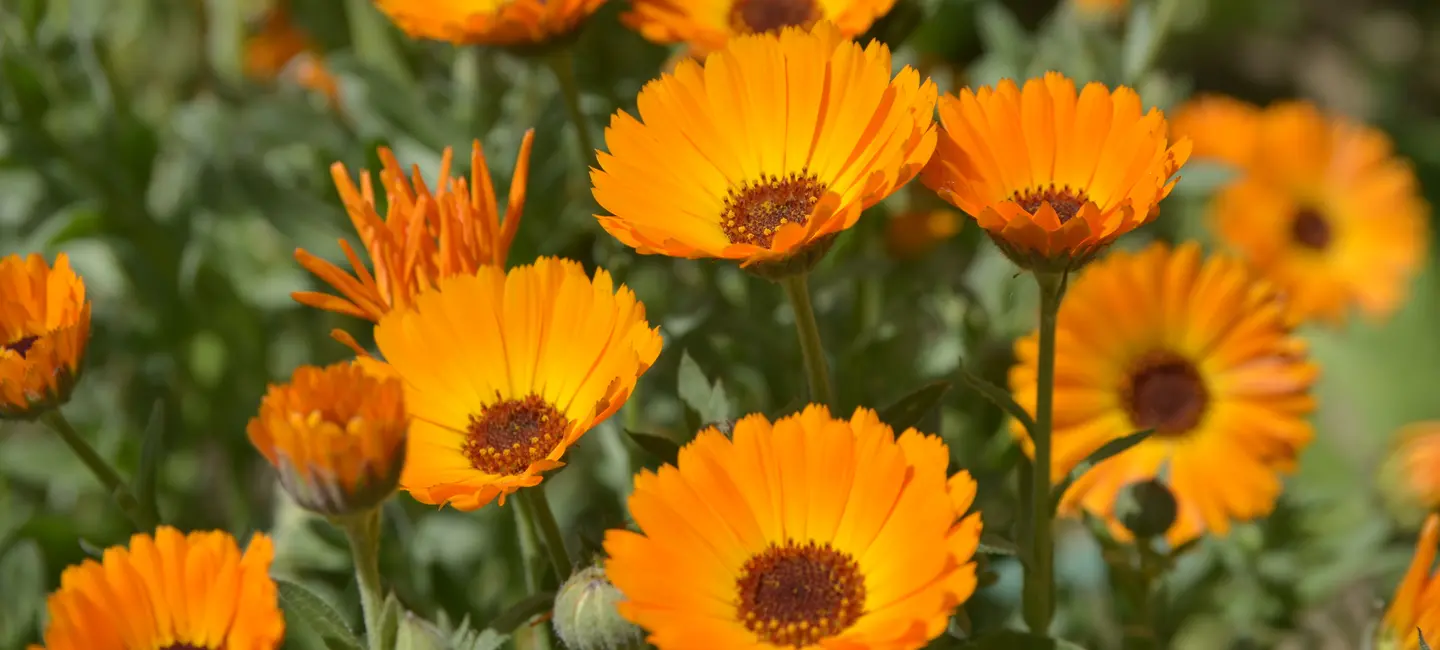
Calendula (Calendula officinalis) is a plant known as pot marigold. It is not the same as ornamental marigolds of the Tagetes genus grown in vegetable gardens.
Calendula is native to Asia and southern Europe and has been traditionally used in Ayurvedic and Unani systems of medicine. The chemicals in calendula might help new tissue grow in wounds and decrease swelling in the mouth and throat.
Calendula flower is commonly used for wounds, rashes, infections, inflammation, and many other conditions. But there's no strong evidence to support the use of calendula for any purpose.
Is It Effective?
There is interest in using calendula for a number of purposes, but there isn't enough reliable information to say whether it might be helpful.
Is it Safe?
When taken by mouth: Preparations of calendula flower are likely safe for most people.
When applied to the skin: Preparations of calendula flower are likely safe for most people.
Special Precautions & Warnings:
Pregnancy: Don't take calendula by mouth if you are pregnant. It is likely unsafe. There is a concern that it might cause a miscarriage. It's best to avoid topical use as well until more is known.
Breast-feeding: There isn't enough reliable information to know if calendula is safe to use when breast-feeding. Stay on the safe side and avoid use.
Allergy to ragweed and related plants: Calendula may cause an allergic reaction in people who are sensitive to the Asteraceae/Compositae family. Members of this family include ragweed, chrysanthemums, marigolds, daisies, and many others. If you have allergies, be sure to check with your healthcare provider before taking calendula.
Sedative medications (CNS depressants)
Interaction Rating=Moderate Be cautious with this combination.
Calendula might cause sleepiness and slowed breathing. Some medications, called sedatives, can also cause sleepiness and slowed breathing. Taking calendula with sedative medications might cause breathing problems and/or too much sleepiness.
There are no known interactions with herbs and supplements.
There are no known interactions with foods.
There isn't enough reliable information to know what an appropriate dose of calendula might be. Keep in mind that natural products are not always necessarily safe and dosages can be important. Be sure to follow relevant directions on product labels and consult a healthcare professional before using.
Caléndula, Calendula officinalis, Calendule, Common Marigold, English Garden Marigold, English Marigold, Fleur de Calendule, Fleur de Tous les Jours, Fleur de Tous les Mois, Garden Marigold, Gold-Bloom, Holligold, Marigold, Marybud, Pot Marigold, Souci des Champs, Souci des Jardins, Souci des Vignes, Souci Officinal, Zergul.
Information on this website is for informational use only and is not intended to replace professional medical advice, diagnosis, or treatment. While evidence-based, it is not guaranteed to be error-free and is not intended to meet any particular user’s needs or requirements or to cover all possible uses, safety concerns, interactions, outcomes, or adverse effects. Always check with your doctor or other medical professional before making healthcare decisions (including taking any medication) and do not delay or disregard seeking medical advice or treatment based on any information displayed on this website.
© TRC Healthcare 2024. All rights reserved. Use and/or distribution is permitted only pursuant to a valid license or other permission from TRC Healthcare.
